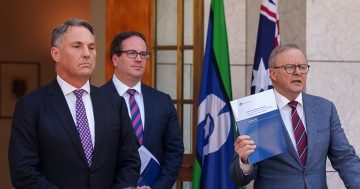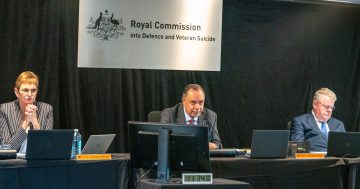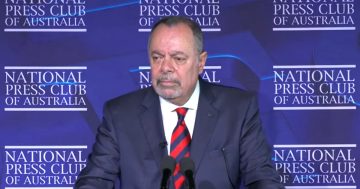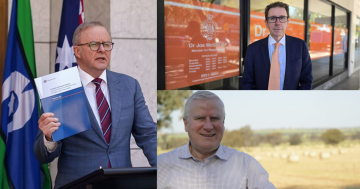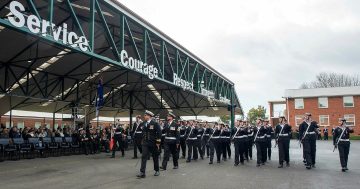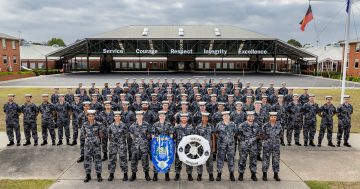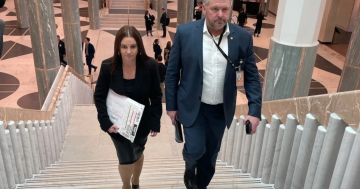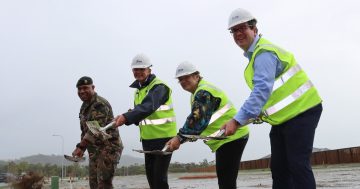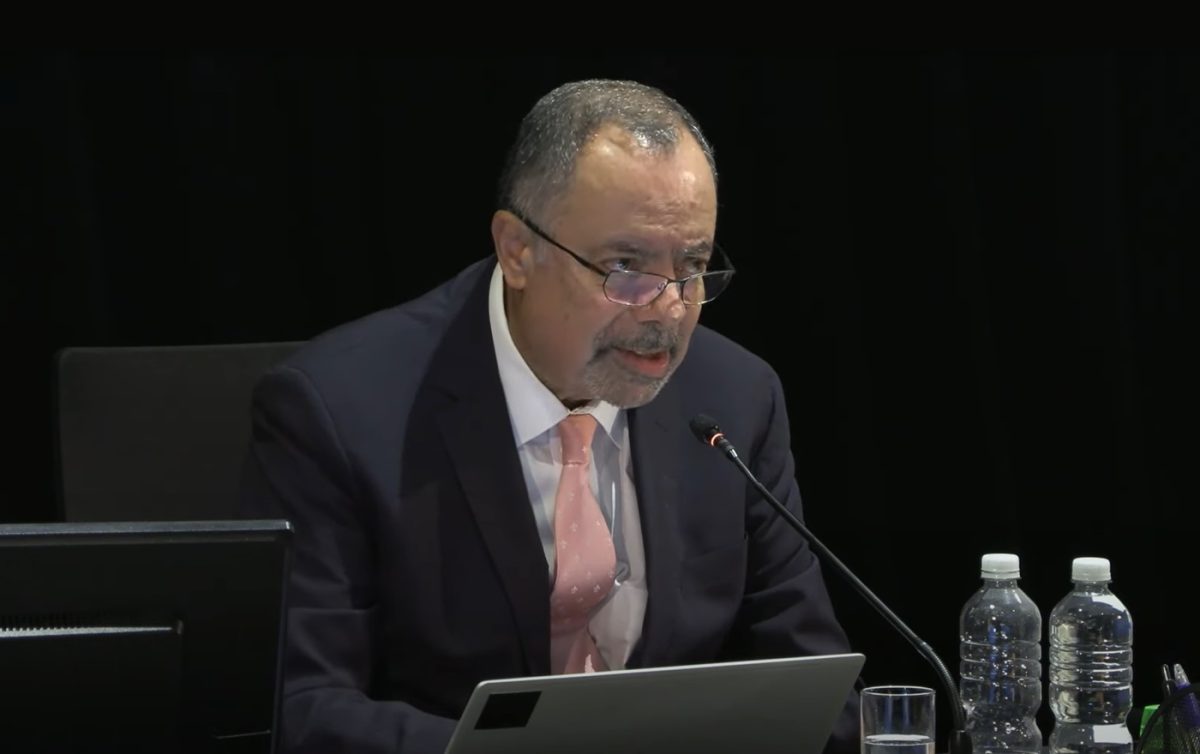
Royal Commission Chair Nick Kaldas giving his final wrap on proceedings. Photo: Screenshot.
The three-year-long Royal Commission into Defence and Veteran Suicide wrapped up proceedings in the week before Easter, with commissioners describing evidence provided during its proceedings pointing towards a “catastrophic failure of leadership”.
In his closing remarks, Royal Commission Chair and former NSW Police Deputy Commissioner Nick Kaldas said, “In the last three years we have learned much.
“The vast majority of those who serve in our military have a rewarding career and go on to successfully transition to civilian life,” he said. “For many, though, that’s not the case.”
He said when the Royal Commission started, Defence said the suicide rate among serving members of the ADF was lower than among the general Australian population, and that serving in the ADF was a protective factor against suicide.
“But this royal commission has looked at the issue independently and identified that, when looked at from different perspectives, Defence’s prior understanding of the risk of suicide among currently serving ADF members does not necessarily hold true,” he said.
In fact, when comparing the suicide rate among currently serving ADF members with the employed population of Australia, the royal commission’s preliminary results showed that males serving in the permanent forces are around 30 per cent more likely to die by suicide.
He said at least 1677 serving and ex-serving ADF members had died by suicide between 1997 and 2021, but added this official figure may in fact be as high as 3000.
“While suicide may not be predictable in every individual – it must be viewed as preventable,” he said.
“This royal commission has spent the best part of three years now examining the cultural and systemic issues across the veteran ecosystem that are failing past and present personnel – and which are contributing to this national crisis.
“It’s been a mammoth task, which we have been privileged to undertake.
“It’s apparent there has been a catastrophic failure of leadership at a government level and within the military to prioritise the urgent reforms and implement effectively the previous recommendations required to deliver improved health and wellbeing outcomes for Defence personnel and veterans.
“And despite all the rhetoric from those in positions of power about people being Defence’s greatest asset – the senseless loss of life, and the devastating impacts for families and loved ones, continues to this day.”
Mr Kaldas said it had been “heartening” to hear testimony from Defence senior leadership whom he said were “not only acknowledging that there is a problem – but owning it”.
In the last week, Chief of Air Force AIRMSHL Robert Chipman said, “I think we now clearly understand the nexus between an individual’s experience in service, particularly if they experience negative outcomes where they’re involuntarily separated or they’re a victim of unacceptable behaviour.
“If we don’t address those issues while they’re in service, then it leads to negative outcomes for them once they leave,” AIRMSHL Chipman said. “So, it is a service issue.”
Chief of Navy VADM Mark Hammond echoed his Air Force counterpart. “We do put our people in challenging, risky and sometimes harrowing environments, and it leaves a mark,” he said.
“We do a good job of rehabilitating physical injuries. We’ve got to find a better way to rehabilitate and manage mental health injury.”
Chief of Army LTGEN Simon Stuart said the royal commission would be a generational influence in Army.
“[T]o the point that commissioners are seeking an assurance about ownership, I can give you that assurance,” he said. “I own this problem. We own this problem. And we are committed to doing something about it.”
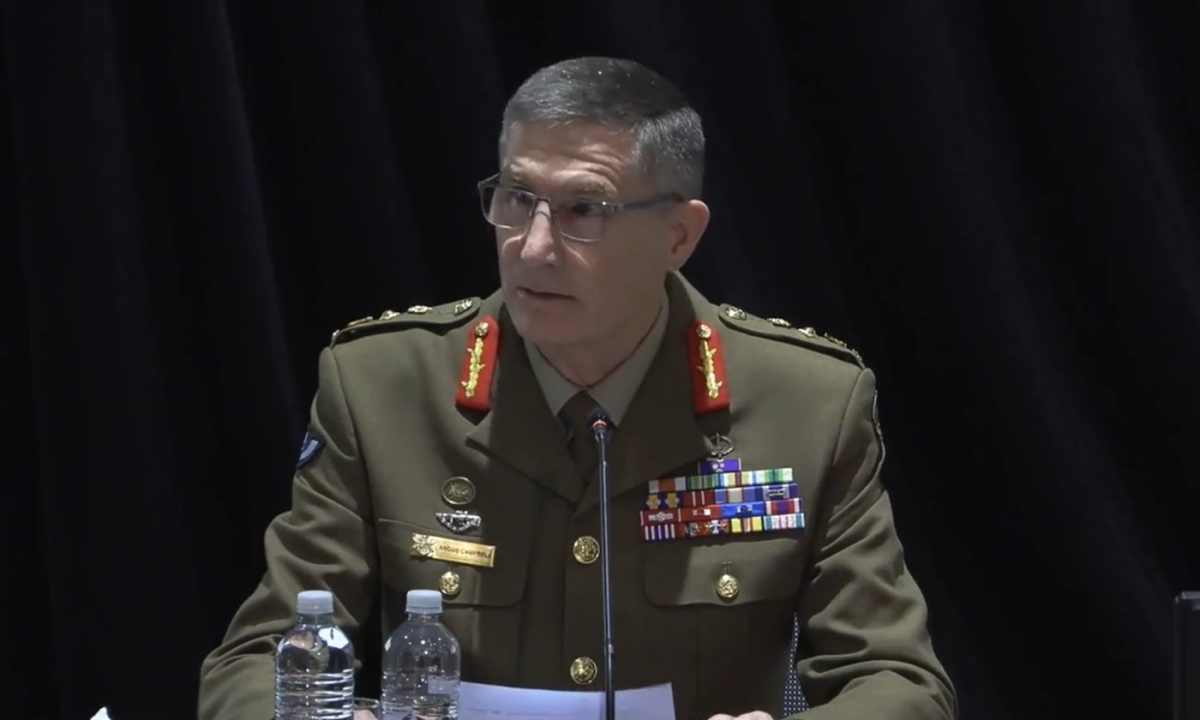
Chief of Defence Force General Angus Campbell’s tenure ends in July so he will be retired when the final report is handed down. Photo: Screenshot.
Outgoing Chief of Defence Force GEN Angus Campbell said ADF members deserved and should rightly expect the wellbeing, support and care they needed, both during and after their service.
“I acknowledge that this has not always been the case and has tragically led to the death by suicide of some of our people,” he said.
The final report of the royal commission is due to be handed down in September and will recommend the formation of an independent oversight body to sit above Veterans’ Affairs (DVA).
Mr Kaldas said it would be “a blueprint for the long-overdue cultural and system-wide reforms required to deliver improved health and wellbeing outcomes for our serving and ex-serving ADF members, and their families.
“We commissioners are determined to deliver a final report with robust, evidence-based findings and practical recommendations to deliver real, meaningful and long-lasting improvements to the lives and livelihoods of serving and ex-serving ADF members, and their families,” he said.
“Key to our success will be an enduring, powerful new body to hold government, the ADF, Defence, DVA and other relevant agencies, as well as state and territory governments, to account – to make sure they prioritise the major, long-term and complex reforms that are required.”
If you or someone you know needs help, you can contact:
Lifeline’s 24-hour crisis support line – 13 11 14
Suicide Call Back Service – 1300 659 467
Kids Helpline – 1800 551 800 or kidshelpline.com.au
MensLine Australia – 1300 789 978.



